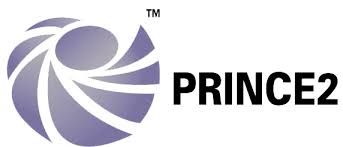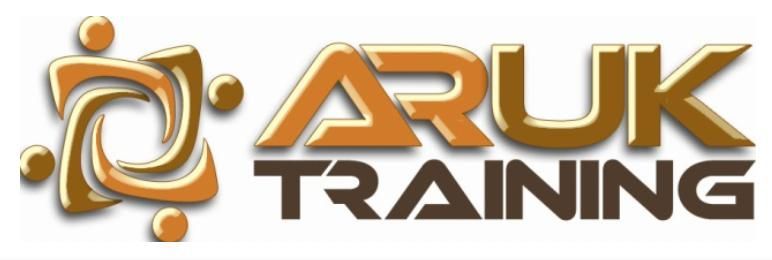
Executive Secretariat Excellence
Course ID: 2508110101202EGI
Course Dates : 11/08/25 Course Duration : 5 Studying Day/s Course Location: London, UK
Language: Bilingual
Course Category: Professional and CPD Training Programs
Course Subcategories: Operations and Process Excellence
Course Certified By: * Projacs Academy
* Professional Training and CPD Programs
Certification Will Be Issued From :
KSA
Course Fees: £4,838.34
Vat Not Included in the price. VAT may vary depending on the country where the course or workshop is held.
Click to Pay
Date has passed please contact us Sales@e-s-hub.com
Course Information
Introduction
The role of an executive secretary has evolved significantly over the past decade, transitioning from traditional administrative support to a strategic partnership that drives organizational efficiency. In modern workplaces, executive secretaries are no longer confined to routine tasks such as scheduling meetings or managing correspondence; they now serve as gatekeepers, project coordinators, and communication facilitators who contribute directly to business success. This shift underscores the growing demand for professionals who can seamlessly integrate into leadership teams while maintaining operational excellence. The "Executive Secretariat Excellence" course is designed to equip participants with the advanced skills and knowledge necessary to excel in this dynamic role.
One of the key challenges faced by executive secretaries today is balancing multifaceted responsibilities without compromising quality or timeliness. From managing complex calendars to handling sensitive information, the scope of their duties requires exceptional organizational skills, emotional intelligence, and adaptability. However, many professionals lack access to structured training programs that address these specific needs. For instance, a recent survey conducted by the International Association of Administrative Professionals revealed that 65% of respondents felt underprepared for high-level decision-making scenarios involving conflict resolution or crisis management. This course bridges that gap by providing targeted insights into best practices and cutting-edge tools.
Mastering the competencies taught in this program offers significant benefits for both individuals and organizations. On a personal level, participants will enhance their career prospects by acquiring sought-after skills such as advanced time management, stakeholder engagement, and digital proficiency. Organizations, on the other hand, stand to gain through improved productivity, streamlined workflows, and enhanced client satisfaction. Consider the case of a multinational corporation where an executive secretary implemented automated scheduling software after attending similar training—this change reduced meeting coordination time by 40%, freeing up resources for more strategic initiatives.
To ensure relevance and rigor, the course draws upon established frameworks such as Stephen Covey’s 7 Habits of Highly Effective People and Daniel Goleman’s Emotional Intelligence model. These theories provide a strong foundation for understanding interpersonal dynamics and prioritization strategies. Additionally, emerging trends like remote work optimization and data-driven decision-making are incorporated to reflect current industry demands. By aligning theoretical concepts with practical applications, the course fosters a holistic learning experience.
Real-world examples further highlight the transformative potential of mastering executive secretarial skills. Take, for example, a senior executive assistant at a Fortune 500 company who successfully mediated a critical negotiation between two departments using advanced communication techniques learned during professional development training. Such outcomes demonstrate how equipping executive secretaries with robust skill sets not only enhances individual performance but also amplifies organizational impact.
Ultimately, this course represents an invaluable opportunity for professionals seeking to elevate their contributions within their organizations. Whether you’re navigating the intricacies of global business environments or striving to maintain seamless operations amidst rapid technological advancements, "Executive Secretariat Excellence" provides the tools and insights needed to thrive. Participants will leave empowered to take on greater responsibilities, foster collaborative relationships, and drive meaningful results.
Objectives
By attending this course, participants will be able to:
Analyze the evolving role of executive secretaries in contemporary workplaces and identify key competencies required for success.
Evaluate various time management methodologies and implement tailored strategies to optimize daily workflows.
Design effective communication plans that facilitate clear and concise interactions with internal and external stakeholders.
Apply advanced digital tools and technologies to streamline administrative processes and enhance productivity.
Assess potential risks in confidential document handling and develop protocols to ensure compliance with legal and ethical standards.
Implement conflict resolution techniques to address workplace disputes and foster positive team dynamics.
Synthesize feedback mechanisms to continuously improve performance and align with organizational goals.
Who Should Attend?
This course is ideal for:
Executive assistants, personal assistants, and administrative professionals aiming to refine their skills and expand their responsibilities.
Office managers and coordinators responsible for overseeing day-to-day operations in corporate settings.
HR personnel tasked with supporting leadership teams and managing employee relations.
Consultants and freelancers offering specialized administrative services to diverse clients.
Training Method
• Pre-assessment
• Live group instruction
• Use of real-world examples, case studies and exercises
• Interactive participation and discussion
• Power point presentation, LCD and flip chart
• Group activities and tests
• Each participant receives a 7” Tablet containing a copy of the presentation, slides and handouts
• Post-assessment
Program Support
This program is supported by:
* Interactive discussions
* Role-play
* Case studies and highlight the techniques available to the participants.
Daily Agenda
The course agenda will be as follows:
• Technical Session 08.30-10.00 am
• Coffee Break 10.00-10.15 am
• Technical Session 10.15-12.15 noon
• Coffee Break 12.15-12.45 pm
• Technical Session 12.45-02.30 pm
• Course Ends 02.30 pm
Course Outlines
Foundations of Executive Secretarial Excellence
Understanding the evolving role of executive secretaries
Building emotional intelligence for effective stakeholder engagement
Mastering professional etiquette in virtual and in-person settings
Developing a proactive mindset for anticipating leadership needs
Day 2:
Advanced Time Management and Workflow Optimization
Exploring time management frameworks (e.g., Eisenhower Matrix)
Prioritizing tasks based on urgency and importance
Leveraging automation tools for scheduling and reminders
Balancing competing priorities in high-pressure environments
Day 3:
Communication Strategies and Relationship Management
Crafting compelling emails, reports, and presentations
Enhancing verbal and non-verbal communication skills
Navigating difficult conversations and resolving conflicts
Fostering trust and collaboration with senior executives
Day 4:
Technology Integration and Data Security
Utilizing CRM systems and project management platforms
Safeguarding sensitive information through encryption and secure sharing
Adhering to GDPR and other data protection regulations
Staying updated on emerging tech trends impacting administrative roles
Day 5:
Strategic Contributions and Continuous Improvement
Aligning personal objectives with organizational goals
Conducting self-assessments and soliciting constructive feedback
Preparing for leadership opportunities within the organization
Creating actionable development plans for long-term growth



















































